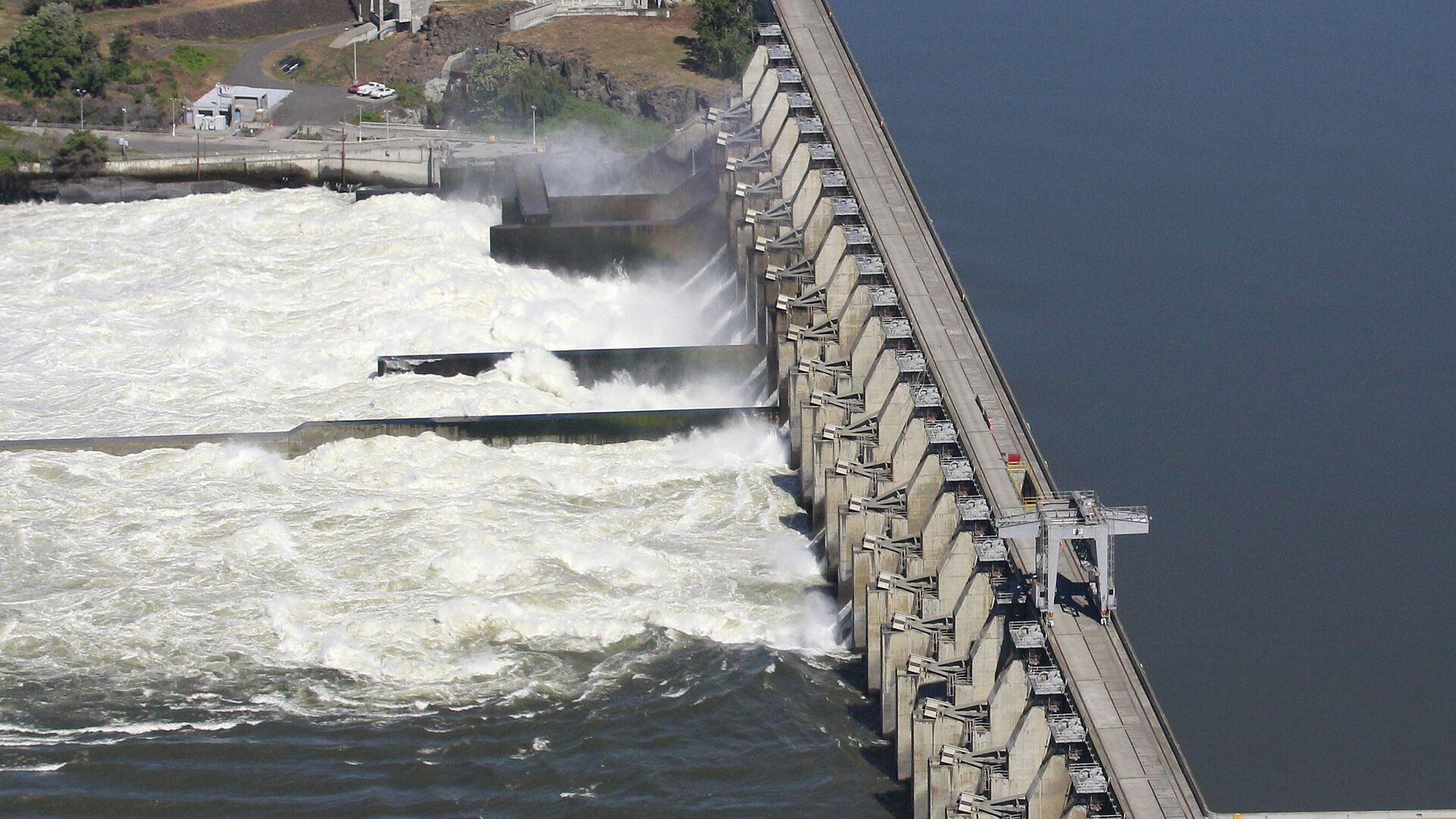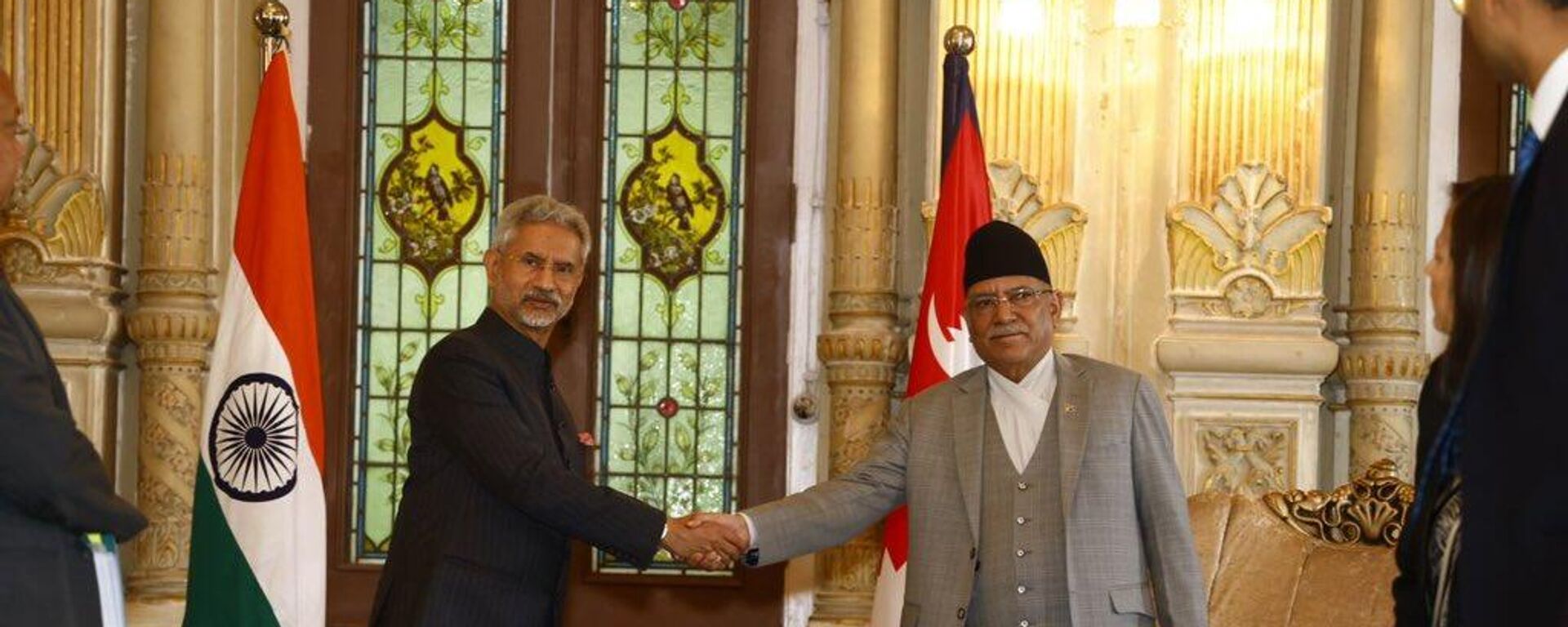https://sputniknews.in/20240129/bangladesh-nepal-forge-partnership-in-hydropower--climate-change-endeavours-6369285.html
Bangladesh, Nepal Forge Partnership in Hydropower & Climate Change Endeavours
Bangladesh, Nepal Forge Partnership in Hydropower & Climate Change Endeavours
Sputnik India
Bangladesh and Nepal on Sunday agreed to strengthen regional cooperation and cooperation on hydropower and climate change.
2024-01-29T14:06+0530
2024-01-29T14:06+0530
2024-01-29T14:06+0530
sheikh hasina
nepal
bangladesh
ministry of defence (mod)
ministry of external affairs (mea)
ministry of earth sciences
renewable energy
clean energy
green energy
energy prices
https://cdn1.img.sputniknews.in/img/07e8/01/1d/6371357_483:0:3178:1516_1920x0_80_0_0_b2e9ea4f432a01f1cb30381291c9ecff.jpg
Bangladesh and Nepal on Sunday agreed to strengthen regional cooperation and cooperation on hydropower and climate change.Both parties stressed the importance of working together to overcome obstacles that may arise after LDC status is achieved and to strengthen existing relations.He claimed that companies in Bangladesh wanted to invest in the energy sector and that the country wanted to import more hydropower from Nepal.He also gave Hasan Mahmud, the foreign minister, a briefing on the Nepalese embassy's initiatives to fortify and enhance connections.Bhandari said that the strong political and people-to-people ties could be enhanced in various areas such as trade, connectivity, energy, tourism and education, among others.
https://sputniknews.in/20240114/india--nepal-pledge-for-improved-cross-border-connectivity-forging-economic-ties-6199569.html
nepal
bangladesh
Sputnik India
feedback.hindi@sputniknews.com
+74956456601
MIA „Rossiya Segodnya“
2024
Swapna Nair
https://cdn1.img.sputniknews.in/img/07e7/09/12/4320104_0:0:681:681_100x100_80_0_0_ca8a7d4d582609272840ffdd1cde7278.jpg
Swapna Nair
https://cdn1.img.sputniknews.in/img/07e7/09/12/4320104_0:0:681:681_100x100_80_0_0_ca8a7d4d582609272840ffdd1cde7278.jpg
News
en_IN
Sputnik India
feedback.hindi@sputniknews.com
+74956456601
MIA „Rossiya Segodnya“
Sputnik India
feedback.hindi@sputniknews.com
+74956456601
MIA „Rossiya Segodnya“
Swapna Nair
https://cdn1.img.sputniknews.in/img/07e7/09/12/4320104_0:0:681:681_100x100_80_0_0_ca8a7d4d582609272840ffdd1cde7278.jpg
bangladesh, nepal, hydropower, climate change, ldc status, hydroelectricity, bangladeshi foreign minister hasan mahmud, energy sector, socio-economic progress, nepalese embassy, trade, connectivity, energy, tourism, education
bangladesh, nepal, hydropower, climate change, ldc status, hydroelectricity, bangladeshi foreign minister hasan mahmud, energy sector, socio-economic progress, nepalese embassy, trade, connectivity, energy, tourism, education
Bangladesh, Nepal Forge Partnership in Hydropower & Climate Change Endeavours
Nepal has the capacity to generate 100,000 megawatts of hydropower, and an agreement has been signed between Bangladesh and Nepal to purchase 40 megawatts of hydropower.
Bangladesh and Nepal on Sunday agreed to strengthen regional cooperation and cooperation on hydropower and climate change.
Both parties stressed the importance of working together to overcome obstacles that may arise after LDC status is achieved and to strengthen existing relations.
"Nepal has the potential of producing 100,00MW of hydroelectricity. We have signed a deal to import 40MW of hydropower and now negotiating on tariffs”, said Bangladeshi Foreign Minister Hasan Mahmud.
He claimed that companies in Bangladesh wanted to invest in the energy sector and that the country wanted to import more hydropower from Nepal.
The ambassador from Nepal, Bhandari, described the relationship between Bangladesh and Nepal as amicable and expressed gratitude to Prime Minister Sheikh Hasina for achieving socio-economic progress over the past fifteen years.
He also gave Hasan Mahmud, the foreign minister, a briefing on the Nepalese embassy's initiatives to fortify and enhance connections.
Bhandari said that the strong political and people-to-people ties could be enhanced in various areas such as trade, connectivity, energy, tourism and education, among others.



